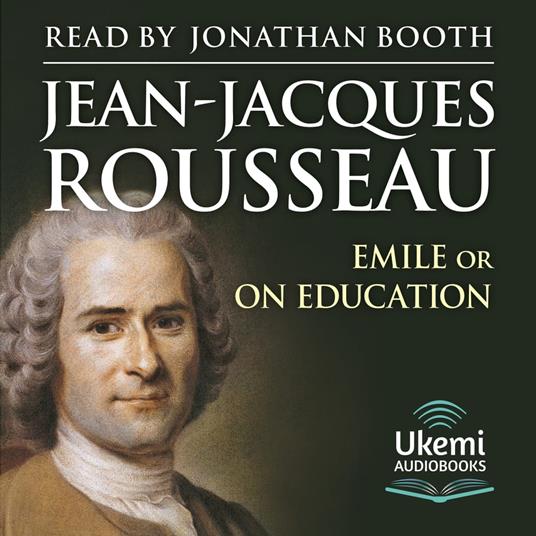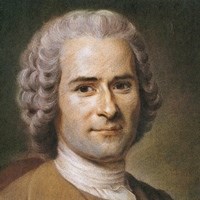Emile or On Education
The Social Contract and Discourse on Inequality may be the two principal philosophical works for which Jean-Jacques Rousseau (1712-1778) is remembered today, but his educational treatise-novel, Emile or On Education, can claim to be an equally important and, for its time, radical work. Published in 1762, it had a profound impact on the approach to the education and upbringing of a child, through infancy, childhood, adolescence and into adulthood. This was partly fuelled by the format - for Rousseau presents before us the boy Emile, taking him through the various stages of life, and as Emile becomes a young man, introducing a female counterpart, Sophie. This device personalises what would otherwise be a more formal philosophical presentation. Emile or On Education is divided into five parts. In book I, Rousseau discusses the challenges of man as a self-centred being, who nevertheless has to learn to live in the world. Rousseau outlines his educational philosophy: ‘Plants are fashioned by cultivation, man by education.’ In book II, Rousseau focusses on the growing child, the child and its place in the world. He argues that this is the time to encounter nature directly in all its varying delights. Book III sees Rousseau placing high on the agenda the learning of a trade, especially a manual skill, and notes the crucial effect played by role models. Book IV outlines the challenges of the teenage world and finally, in book V, covering the early '20s, Rousseau introduces Sophie. His ideas concerning the education of girls are inevitably fashioned by 18th-century views on women’s expected role in society, something which was quickly challenged by figures such as Mary Wollstonecraft. But though Emile or On Education is undeniably a product of its time, it has profoundly influenced educational concepts right into the 21st century. Rousseau argues for the importance of physical activity in the early years, for example, playing outside and interacting with nature. Only later, as adolescence approaches, should formal study play a more prominent part. The adolescent should approach issues such as religion and philosophy with an open mind (this brought Rousseau and Emile directly into conflict with the conventional religious institutions, resulting in the banning, and even burning, of the book in Paris and Geneva). Emile or On Education proved a milestone in educational reform and it has remained a stimulating document. For example, it asks, ‘Is it good for young people to travel? It should be asked, Are men the better for having travelled?’ And further, ‘The misuse of books is the death of sound learning...there was never so much reading in any age as the present, and never was there less learning...so many books lead us to neglect the book of the world.’ Translation by Barbara Foxley.
-
Autore:
-
Durata in (hh:mm:ss):22:42:31
-
Anno edizione:2021
-
Editore:
Formato:
Gli Audiolibri venduti dal nostro sito sono in formato MP3 e protetti da un DRM proprietario Kobo.
Compatibilità:
Gli Audiolibri venduti dal nostro sito possono essere ascoltati sul tuo smartphone o tablet tramite la APP gratuita Kobo Books scaricabile da iOS o Android. Gli Audiolibri non possono essere scaricati in locale o trasferiti su un client di ascolto diverso da quello fornito tramite Kobo. Non è possibile ascoltare gli audiolibri con la Kobo APP Desktop. Puoi ascoltare gli Audiolibri tramite determinati eReader Kobo, utilizzando cuffie o casse con Bluetooth. Visita la pagina degli eReader per avere maggiori dettagli.
Cloud:
Gli Audiolibri venduti singolarmente dal nostro sito sono immediatamente sincronizzati sul tuo account personale in automatico. Successivamente all'acquisto, sono subito disponibili all'ascolto tramite i client di lettura Kobo compatibili.
Clicca qui servissero ulteriori informazioni




